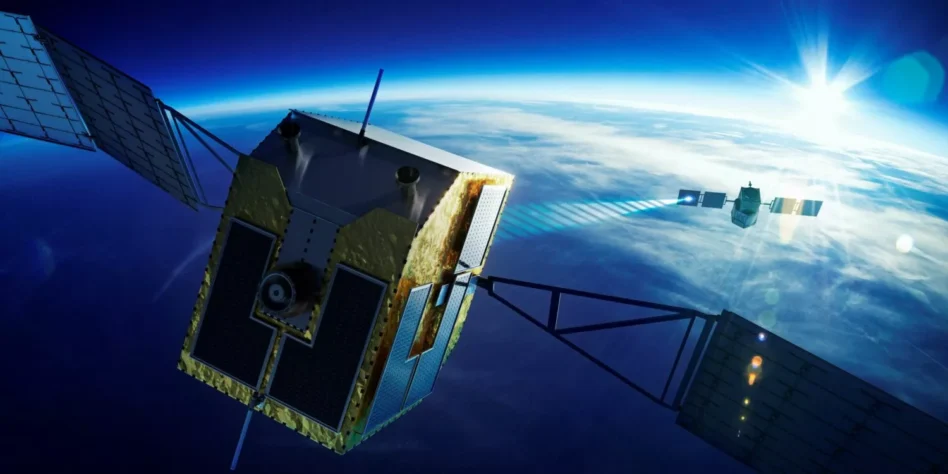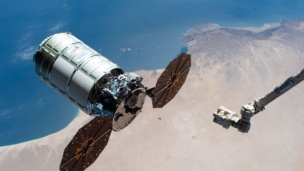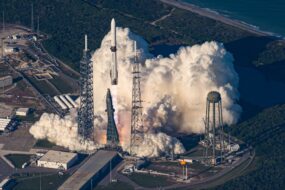We’ve seen companies build robotic arms for removing debris in orbit. We’ve seen magnetic repositioning. We’ve seen space nets. Now, a Japanese firm has a new concept for getting junk out of the way in space: lasers.
This week, SKY Perfect JSAT, a Japanese satellite company operating 17 birds, announced the opening of its new subsidiary: Orbital Lasers. The new venture will focus on taking down spinning pieces of debris with a laser payload it developed in partnership with Riken, a domestic research institute. Orbital Lasers will aim to market its first space lasers in 2025.
“As a satellite operator, this debris issue is now regarded as an environmental problem as significant as global warming and marine plastic pollution,” according to a press release. “SKY Perfect JSAT and Orbital Lasers are addressing this concern and aiming to contribute to the improvement of a sustainable space environment.”
Shot down: Orbital Lasers’ approach to removing harmful debris from orbit uses a process it calls “laser ablation.”
- Using a laser-shooting payload with a range of 100 m, the company can target rapidly tumbling debris in orbit.
- The laser is meant to erode the outer layer of the satellite and slow its tumbling.
- After the target has stopped spinning, it’s easier to grapple it or direct it toward the Earth for a controlled reentry.
Side gig: The laser tech that the new company is planning to develop will target several markets. On top of the debris detumbling and removal tech, Orbital Lasers will also build out an EO arm using LiDAR to deliver precision data across the Earth’s surface.
What’s next? Orbital Lasers is targeting domestic and foreign space debris removal companies as its customers, aiming to sell them this payload to make it easier to detumble. The payload itself is expected to begin development in 2025 and hit orbit by 2029.




